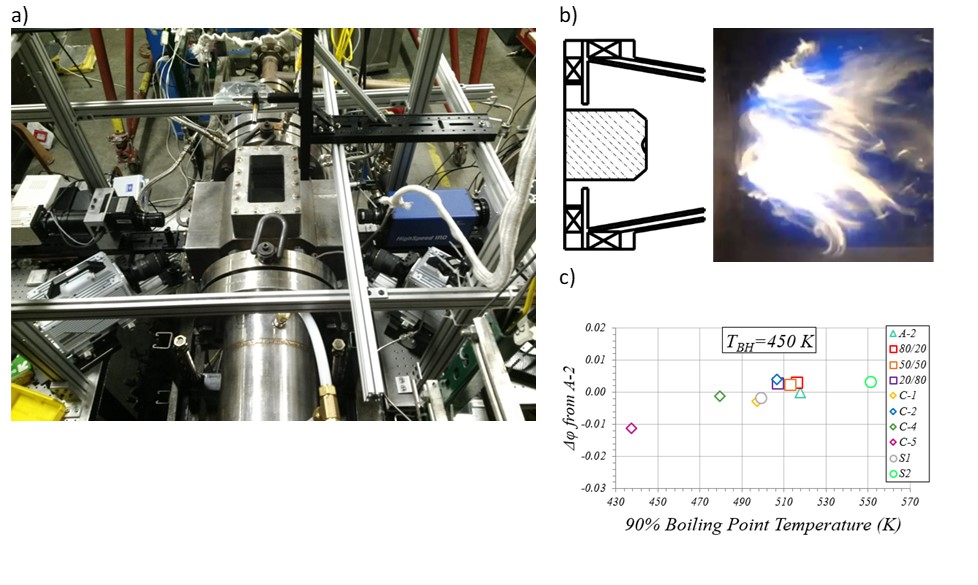
The Georgia Tech combustion team has researched clean aviation combustion since its beginning. More recently, the Georgia Tech combustion team entered the sustainable aviation fuels testing field during the National Jet Fuels Combustion Program (NJFCP). Georgia Tech performed performance testing (ignition and blowout) at relevant operating conditions with engine relevant combustor hardware. Testing was conducted on conventional petroleum-derived jet fuels, neat alternative jet fuels such as Fischer-Tropsch fuels, and blends of petroleum and alternative fuels. The objective of the work was to understand the impact of drop-in alternative fuels on combustor performance. To this end, Georgia Tech and its partners also tested customized fuels with specific property perturbations to isolate certain fuel property effects and uncovered important learnings about sensitive fuel properties.
Sustainable aviation research remains as an important part of Georgia Tech’s combustion research portfolio today. Current topics include continued research with drop-in sustainable aviation fuels. This work aims to improve our understanding of the general impact of fuel properties on combustor operability and emissions. Additionally, Georgia Tech is exploring sustainable aviation from other angles, including a partnership with Penn State to investigate hybrid-electric gas turbine engines for aviation.
Today’s sustainable aviation research also includes targeted research areas for engine OEMs. These research areas include effects of drop-in fuels, as well as understanding how hardware could be co-optimized and engineered with non-drop in alternative fuels. This work has engine OEM involvement to test specific hardware platforms, with topics including particulate emissions, sprays, thermal management, combustion dynamics, and observability.

